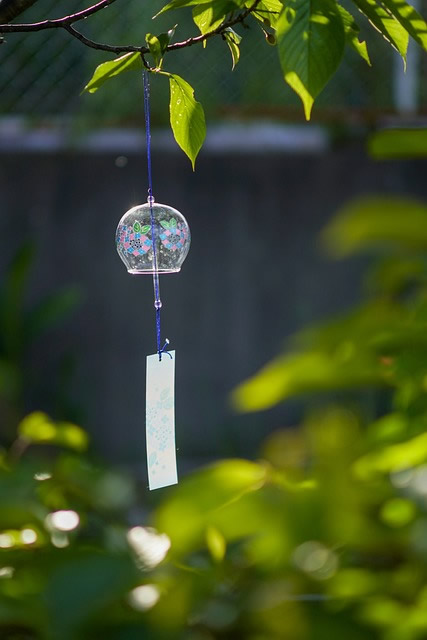先日から「Want to cope with heatwaves? Look to Japan’s creative cooling solutions -「熱波への対処、日本の独創的な涼み方」を読んでいます。

・「熱波への対処、日本の独創的な涼み方」(1)
・「熱波への対処、日本の独創的な涼み方」(2)
・「熱波への対処、日本の独創的な涼み方」(3)
・「熱波への対処、日本の独創的な涼み方」(4)
・「熱波への対処、日本の独創的な涼み方」(5)
・「熱波への対処、日本の独創的な涼み方」(6)
Stay in sync
同期するApparently, when my wife and I were devouring platefuls of katsu curry, we were being smart.
どうやら私と妻がカツカレーを夢中で食べたことは、賢かったようだ。
Like many cultures across Asia, the Japanese believe spicy foods can pep up your tired system after a warm day, or even make you sweat, thereby cooling you.
アジアの多くの文化と同様、日本人は辛い食べ物が暑い一日の後の疲れた体に活力を与え、汗をかかせて体を冷やすと信じている。
There may also be something in the philosophy of eating, and living, in sync with the weather around you.
また周囲の天候に合わせて食事をし、生活するという哲学にも、何か秘訣があるのかもしれない。
As Cath noted, “You might notice that air-con in public spaces is set to ensure it’s not too cold.”
「公共スペースのエアコンが寒すぎない温度になっていることに気づくかも」とキャスは言った。
True enough, more than one train we saw had a sign saying “mildly air-conditioned” on the side.
確かに私たちが見かけた複数の列車の側面には「弱冷房」と書かれていた。
That’s not just a great energy-saving measure, says Cath:
キャスによれば、それは単なる省エネ対策だけでなく
it helps keep you regulated with the ambient heat.
周囲の暑さと自分の身体を調整するのに役立つという。
カレーはインド、インドは暑い、暑い時にはカレー・・・と、なったのかは分かりませんが(笑)、辛いスパイスには身体を冷やす効果があると言われていますよね。
辛い物を食べた後の、内側から体内が活性化されるあの感じ・・・元気が出てきたぞ、と何となく思えます。
理由は単純明快!「少ないコストでしっかり楽しく学べるから」。
私自身の経験(高機能でビックリ)をびっしり書いていますので、良かったら読んでみてください。
下のバナーからどうぞ!






